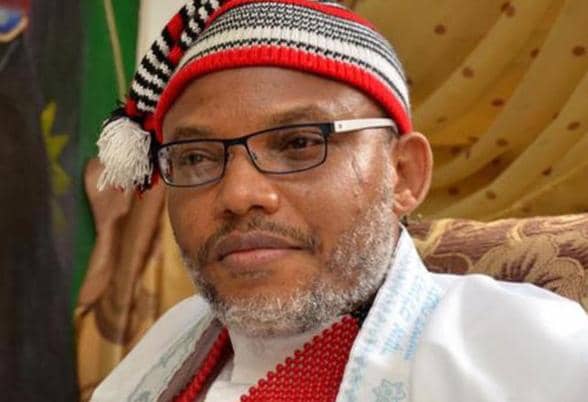
Separatist leader Nnamdi Kanu on Monday refused to defend himself in a Nigerian court, insisting the charges lack legal merit. Kanu, a British citizen and head of the banned Indigenous People of Biafra (IPOB), demanded immediate release, calling the case against him baseless.
He faces seven charges, including terrorism and knowingly broadcasting falsehoods, linked to his campaign for southeastern Nigeria’s secession, which he denies. “There is no extant law in this country upon which the prosecution can predicate the charges against me,” Kanu told Justice Omotosho.
The defendant also withdrew plans to call 23 witnesses, including two Americans, to testify in his defence during the proceedings. Justice Omotosho instructed Kanu to submit a written address outlining his position to the prosecution, urging consultation with legal experts.
The court adjourned the case until November 4, leaving the trial suspended as tensions simmer across southeastern Nigeria. Kanu was first arrested in 2015 but vanished while on bail in 2017, eluding Nigerian authorities for several years.
He was later apprehended in Kenya in 2021 and extradited back to Nigeria, reigniting international attention and local protests. IPOB enjoys significant support in the southeast, where Kanu’s arrest has sparked demonstrations and heightened political unrest in the region.
The separatist movement echoes the failed attempt to secede as the Republic of Biafra in 1967, a conflict that killed over 1 million people. Kanu’s trial remains a focal point of Nigeria’s ongoing struggle with separatist tensions, law, and national unity, watched closely by the world.
